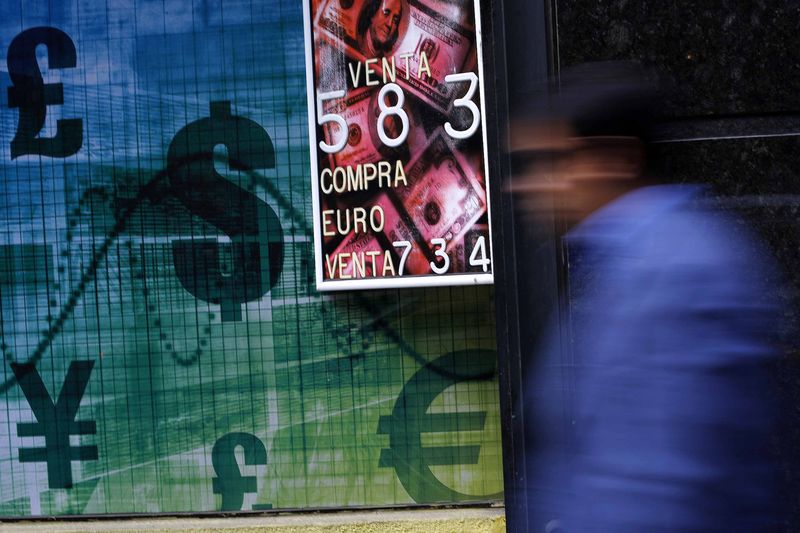(Corrects euro rate in par 3)
* Speculation SNB will match any ECB easing hits franc
* Yuan fixed lower, drags currency lower offshore
* U.S. trading to end early on Friday after Thanksgiving
By Patrick Graham
LONDON, Nov 27 (Reuters) - The Swiss franc sank to a five-year low against the dollar on Friday, hurt by speculation the Swiss National Bank would be forced to follow suit if official euro deposit rates are cut deeper into negative territory next week.
China's yuan, or renminbi, was among the other big movers in major currency markets, offshore rates hitting their weakest in more than two months CNH=D3 ahead of a decision on Monday on whether to include it in the IMF's basket of reserve currencies.
The euro, under pressure all week from expectations the ECB will loosen policy further to enliven the euro zone economy, fell back below $1.06 in trade thinned by the Thanksgiving holiday weekend in the United States.
It fell a quarter of a percent against the dollar EUR=EBS at $1.0580, but rose almost half a percent against the franc. EURCHF=EBS
Dealers and strategists said speculation the SNB would take more action to push back against any franc gains against the euro next week had hurt the Swiss currency. Some speculated the Swiss central bank may have already intervened on Friday.
"Given amplified expectations for a lower ECB deposit rate, there are heightened risks that the SNB will defend appreciation pressure on the franc with further policy actions," said Peter Rosenstreich, Head of Market Strategy at Swissquote Bank in Geneva.
The franc fell almost 1 percent to 1.0328 francs per dollar CHF=EBS , its lowest since August 2010 and way past levels seen at the start of this year when the SNB removed a cap on its value against the euro.
ECB WAIT
The euro has dipped below $1.06 several times this week, and the overwhelming consensus in the market in favour of a stronger dollar points to more weakness. But progress has been slow since strong U.S. jobs data at the start of November.
The yuan CNY= was again fixed weaker by Chinese authorities and offshore rates fell ahead of the IMF's decision on Monday.
Some fund investors expect the yuan to weaken in the aftermath of its inclusion in the basket. But opinion among dealers in London is divided, with some judging China will seek to hold the currency relatively steady after turbulence around a one-off devaluation in August.
The 0.3 percent fall in the tightly controlled rate of the renminbi compared to a more than 5 percent collapse in Shanghai share prices.
"There are a lot of expectations out there for money to flow out of China in the months ahead, given what we have seen on the stock market," said the head of currency trading with one large international bank in London.
"But against that we have the steady shift into reserves, the development of bond markets and first and foremost the control the Chinese authorities want to exert on the RMB. Our feeling is they will want to keep it pretty stable." (Editing by Catherine Evans)
